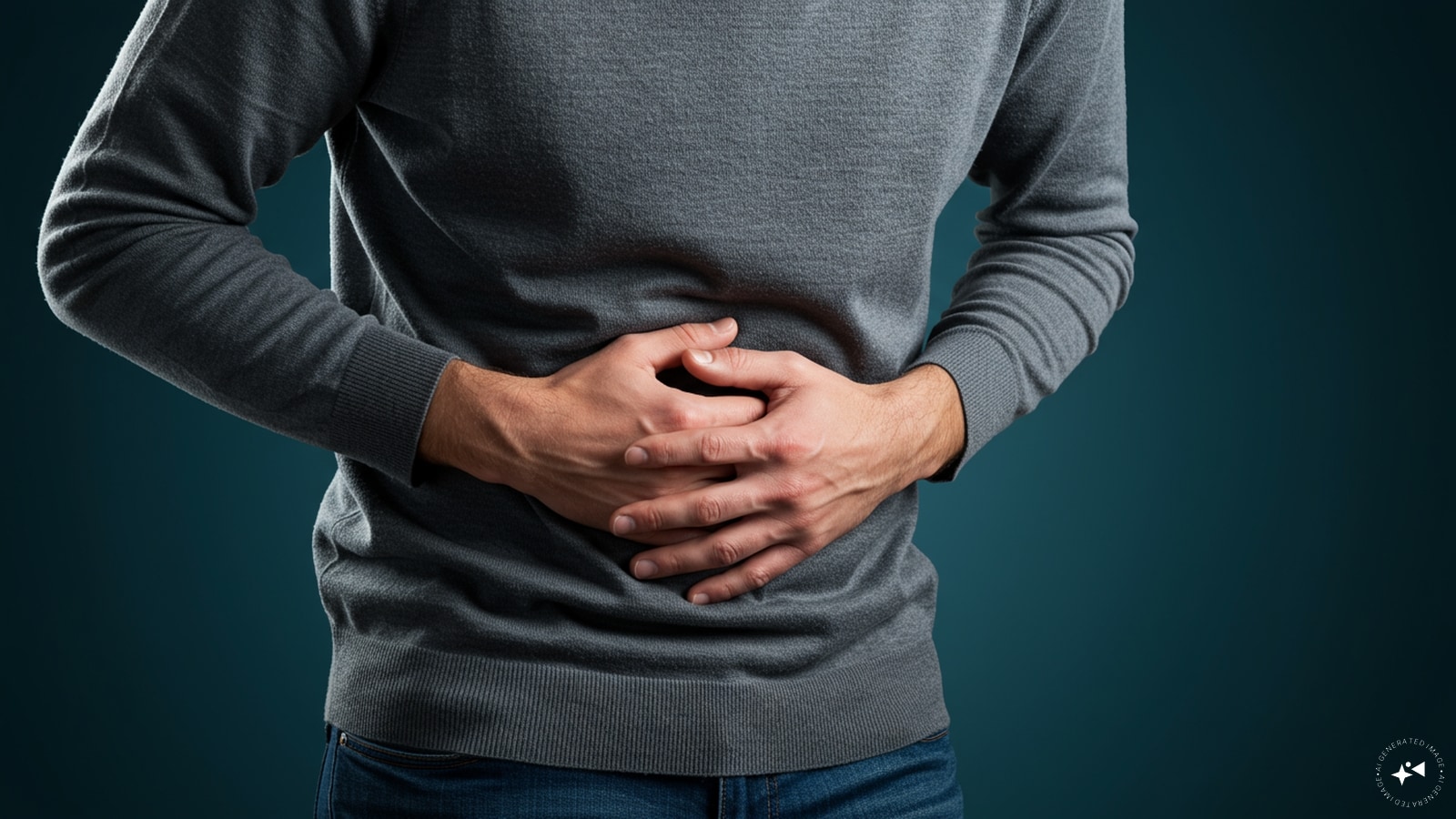Last Updated:
Bloating is often caused by trapped gas in your digestive system, and a few surprising culprits in your healthy diet might be to blame.

Eating quickly and not chewing properly can worsen bloating.
It’s a frustrating paradox; you sit down to a meal full of wholesome, nutrient-packed foods, only to feel gassy, heavy, and bloated soon after. Many people assume bloating signals that something is ‘wrong’ with their digestive system. But in truth, the very foods that support long-term health can sometimes trigger temporary discomfort.
“Bloating is often caused by trapped gas in the digestive system, and surprisingly, some of the healthiest foods are the culprits. This doesn’t mean you should avoid them. It’s more about understanding how your gut works and adjusting your habits,” explains Dr. Archana Batra, Dietitian and Certified Diabetes Educator.
The Fibre Factor and Your Gut Microbes
Fibre is one of the biggest players behind post-meal bloating. Beans, lentils, whole grains, and vegetables are packed with it, making them champions of digestive health. But fibre itself can’t be digested by human enzymes. Instead, it’s broken down by trillions of bacteria in the gut, through fermentation – a process that naturally produces gas.
“If you’ve recently shifted from a low-fibre diet to a high-fibre one, your gut bacteria need time to adapt. That adjustment period is when bloating tends to spike,” says Dr. Batra. While uncomfortable, it’s often a sign of your microbiome getting stronger.
FODMAPs and Complex Carbs
Another group of healthy-food culprits are FODMAPs – short-chain carbohydrates found in onions, garlic, apples, pears, and cauliflower. For people sensitive to them, particularly those with irritable bowel syndrome (IBS), FODMAPs are poorly absorbed in the small intestine. They pull water into the gut and are then fermented by bacteria, leading to gas and bloating.
Cruciferous vegetables like broccoli, Brussels sprouts, and cabbage add another layer to the problem. They contain raffinose, a sugar we can’t digest, which also gets fermented in the large intestine. “The more complex the carbohydrate, the more likely it is to cause gas during digestion,” explains Dr. Batra.
How You Eat Matters Too
It’s not just about the food. It’s about the eating style. Eating too quickly, swallowing large bites, or not chewing properly can all contribute to bloating. “When you eat fast, you swallow more air, and this air gets trapped in the digestive tract,” notes Dr. Batra. Large, unchewed food particles also ferment more vigorously in the gut, compounding discomfort.
Solutions to Beat the Bloat
The good news is that bloating can be managed without giving up healthy foods. Dr. Batra suggests:
- Go gradually: Increase fibre intake slowly to let your gut adjust.
- Chew thoroughly: Take time with meals to aid digestion.
- Stay hydrated: Water helps fibre move smoothly through the system.
- Cook smart: Lightly cooking vegetables makes their fibres easier to digest.
- Track triggers: Keep a food diary to identify your personal problem foods.
“Bloating after healthy meals doesn’t mean your diet is wrong. It often means your body is adjusting,” reassures Dr. Batra. With small tweaks, you can enjoy the benefits of a nutritious diet without the discomfort.
- Location :
Delhi, India, India








